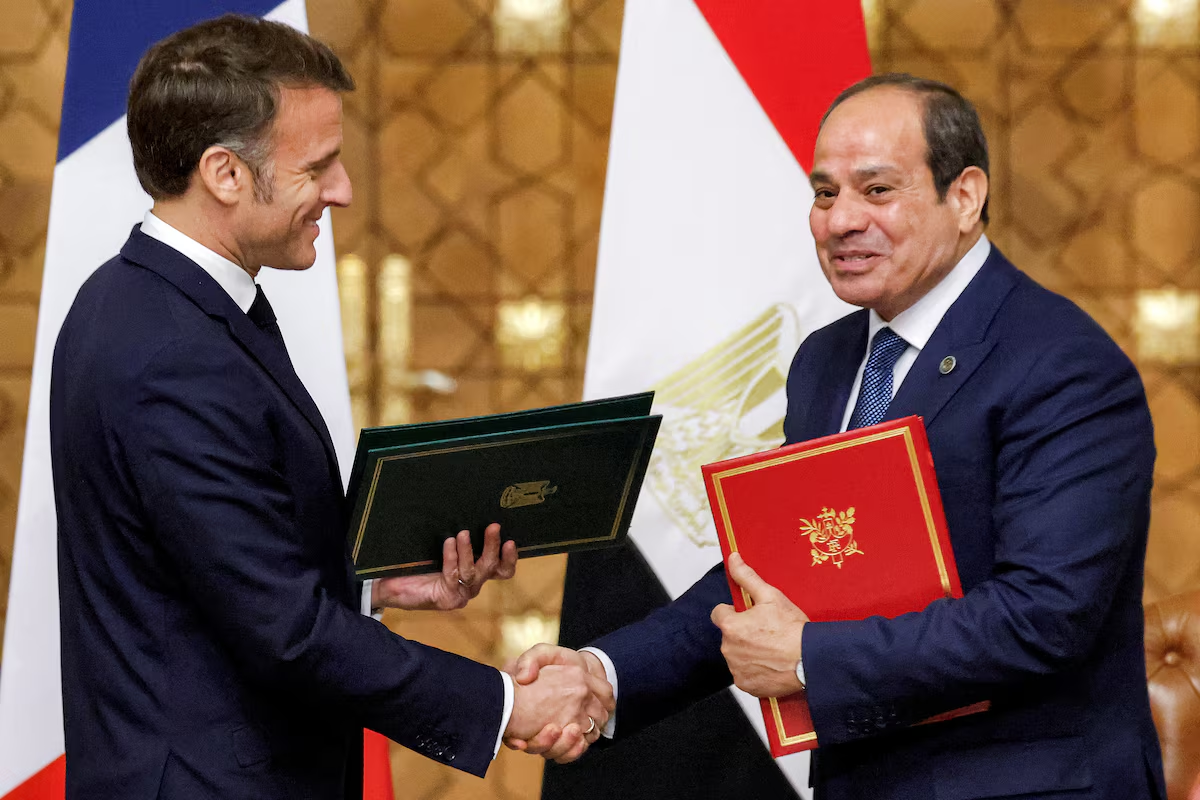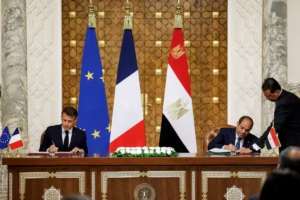Introduction to France-Egypt Relations
France and Egypt share a multifaceted relationship that has evolved significantly over the years. Diplomatic ties between these two nations date back to the late 18th century, notably during Napoleon Bonaparte’s campaign in Egypt in 1798, which marked the beginning of a complex interplay between the two cultures. Over the decades, France has played a pivotal role in Egypt’s modernization efforts, providing support in various sectors including education, health, and infrastructure development. This relationship has been characterized by strategic partnerships, mutual interests, and occasional ideological differences.
In the wake of World War II, Egypt’s nationalist movements and France’s colonial ambitions led to increasing tensions; however, these challenges were addressed through diplomatic channels, resulting in a reaffirmation of bilateral relations. The signing of key agreements and treaties solidified economic and military cooperation, allowing for French investments in critical sectors such as energy, transport, and telecommunications. Today, France continues to be one of Egypt’s top foreign investors, providing expertise that bolsters the Egyptian economy while promoting French strategic interests in the region.
More recently, the geopolitical climate has heightened the importance of this partnership. Egypt’s strategic position as a gateway connecting Africa, Europe, and the Middle East makes it a crucial ally for France, especially in addressing security concerns such as terrorism and migration. France’s support for Egypt is further underscored by recent agreements that aim to enhance bilateral trade, military assistance, and cultural exchanges, all of which contribute to the region’s stability. Understanding this historical context is essential to appreciate the evolving dynamics of France-Egypt relations and the significance of their recent collaborations amidst ongoing regional challenges.
Key Agreements Signed: An Overview
In recent months, France and Egypt have engaged in substantial diplomatic efforts resulting in a series of pivotal agreements designed to fortify their economic partnership. These agreements particularly focus on critical sectors such as energy, infrastructure, and trade, reflecting both nations’ ambitions to enhance cooperative engagement amid regional challenges. The financial commitments outlined in these agreements are set to provide Egypt with much-needed resources while fostering technological transfers that can stimulate growth in the targeted sectors.
One of the primary agreements pertains to the energy sector, where France is poised to invest significantly in renewable energy projects within Egypt. This initiative not only aims to bolster Egypt’s energy production capacity but also aligns with global trends towards sustainability. The transfer of technology and expertise from French companies is expected to accelerate Egypt’s transition towards cleaner energy solutions, positioning it as a leader in renewables in the North African region.
Furthermore, agreements in the infrastructure domain underscore a mutual interest in enhancing trade routes and logistics capabilities. French firms are set to undertake key infrastructure projects, which will not only create jobs and boost the economy but also facilitate smoother trade processes between France and Egypt. This collaboration signifies a strategic alignment that is expected to enhance both countries’ competitiveness in the global market.
The anticipated impacts of these agreements on Egypt’s economy are manifold. By securing financial and technological support from France, Egypt aims to address its pressing economic challenges, including youth unemployment and energy shortages. Additionally, these agreements may lead to a stronger bilateral relationship that could yield further investments and cooperative ventures in the future. For France, strengthened ties with Egypt represent a strategic advantage, particularly in leveraging Egypt’s geographical position and its role as a gateway to the wider African market.
Economic Implications for Egypt
Egypt’s economy has faced numerous challenges in recent years, characterized by high inflation rates, currency volatility, and significant unemployment levels. These factors have not only strained domestic consumption but have also impeded the country’s overall economic growth. In light of its economic struggles, recent agreements between Egypt and France are expected to play a pivotal role in providing much-needed support and stability to the Egyptian economy.
The inflation rate in Egypt has been a pressing issue, with persistent increases in consumer prices affecting the purchasing power of citizens. In 2023, inflation rates reached levels that prompted concern among economists and policymakers. The French government, through strategic investment, seeks to mitigate these inflationary pressures by establishing businesses that can supply both local needs and exports, thereby increasing competition in the market and stabilizing prices.
Moreover, the Egyptian currency has experienced significant volatility, creating uncertainty for both consumers and businesses. A stable currency is critical for attracting foreign investments, and the partnership with France is anticipated to bolster confidence in the Egyptian pound. By infusing capital and expertise into various sectors, this collaboration can pave the way for a more stable economic environment, mitigating the risks associated with currency fluctuation.
Unemployment levels, particularly among the youth, have been alarmingly high, posing a substantial barrier to sustainable growth. The collaboration with France aims to create job opportunities through the establishment of new French enterprises in Egypt. By leveraging technology transfer and skill development programs, this partnership will not only create employment but also enhance the workforce’s competencies, positioning Egypt as a more attractive destination for future investments.
In conclusion, the economic implications of the agreements between France and Egypt are profound, with the potential to address inflation, stabilize currency, and reduce unemployment. As these initiatives unfold, the comprehensive outcomes will likely reflect the strength of this international partnership in revitalizing Egypt’s economy amidst its ongoing challenges.
Broader Regional Context and Future Outlook
The recent agreements between France and Egypt emerge against the backdrop of a complex Middle Eastern and North African landscape characterized by volatility and shifting power dynamics. As Egypt seeks to bolster its economic position through strategic partnerships, France’s economic support plays a crucial role not only in enhancing bilateral relations but also in influencing broader regional stability. The responses from neighboring countries and international actors highlight a spectrum of concerns, particularly regarding the implications of enhanced French involvement in Egypt.
Countries such as Turkey and Qatar, alongside Gulf states, may view France’s deepening ties with Egypt through the lens of rivalry, especially given Egypt’s pivotal role in Arab politics and its historical rivalry with Turkey. These nations may perceive the economic agreements as a potential realignment of power within the region, possibly leading to heightened tensions. Furthermore, such developments could exacerbate existing frictions, particularly in contexts like Libya and the Eastern Mediterranean, where competing interests often intersect.
<pinternational agreements=”” also=”” an=”” and=”” appropriately.
Looking to the future, it is essential to consider how these agreements could shape relations not only between France and Egypt but also among other regional players. If France and Egypt successfully navigate the complexities of their partnership while addressing external concerns, it could serve as a model for cooperation in a region fraught with challenges. The trajectory of this relationship remains to be seen, but its implications for national and regional stability are significant as both nations work to solidify their objectives amid ongoing uncertainties.


